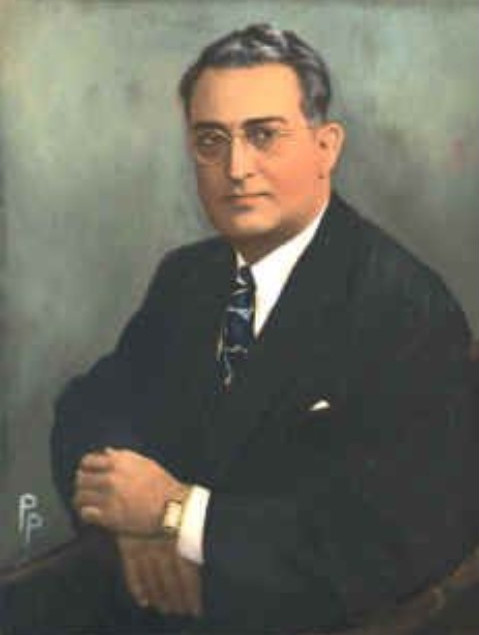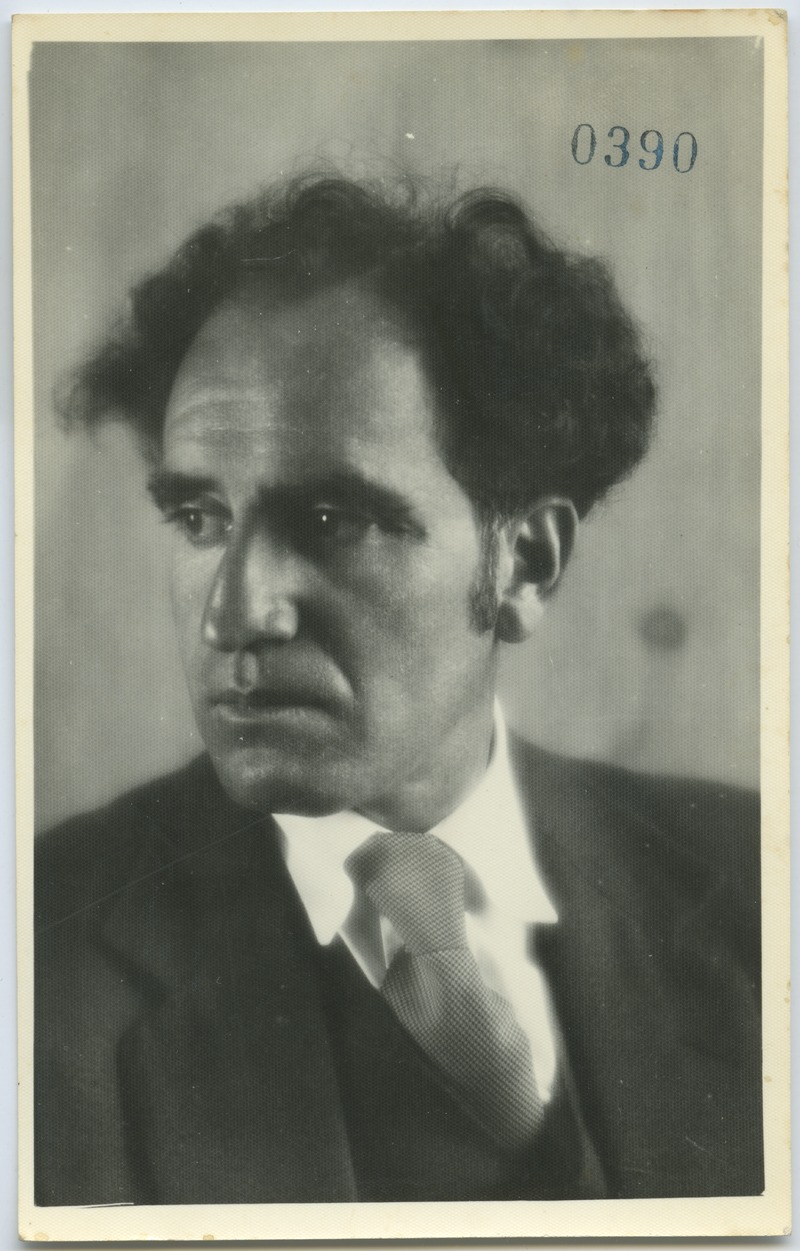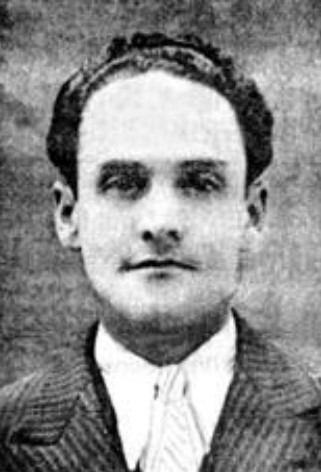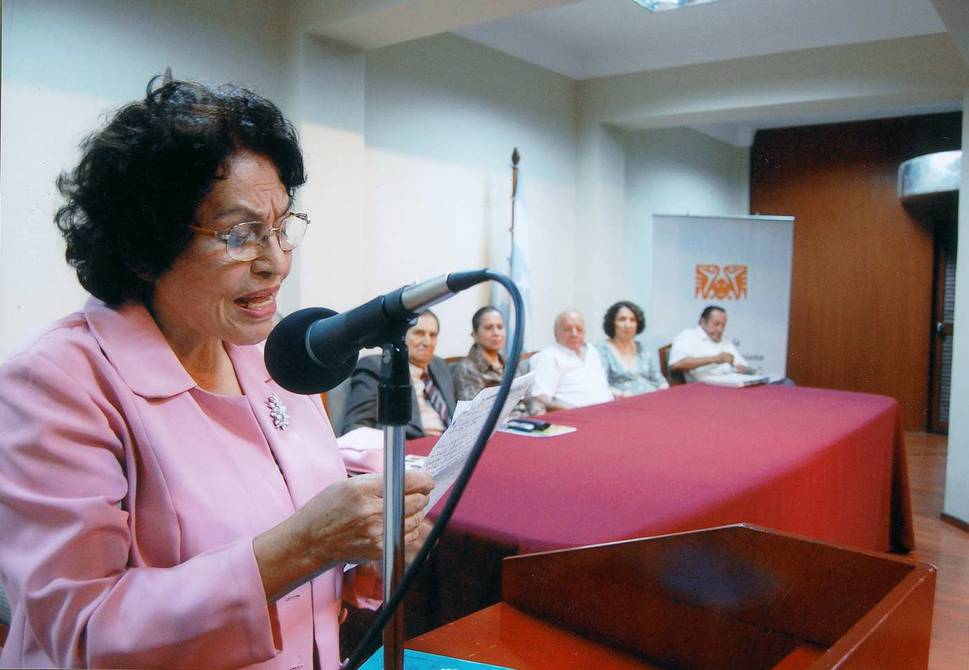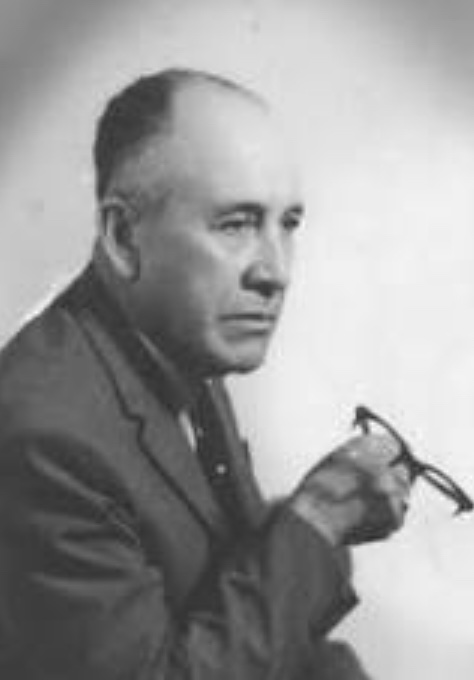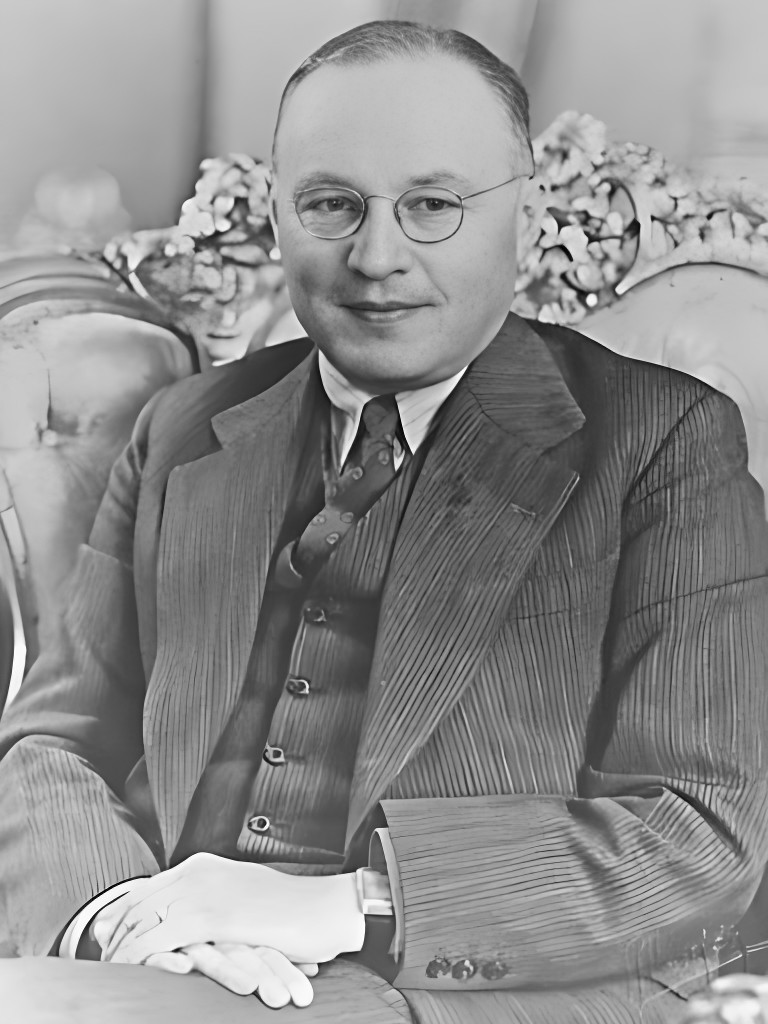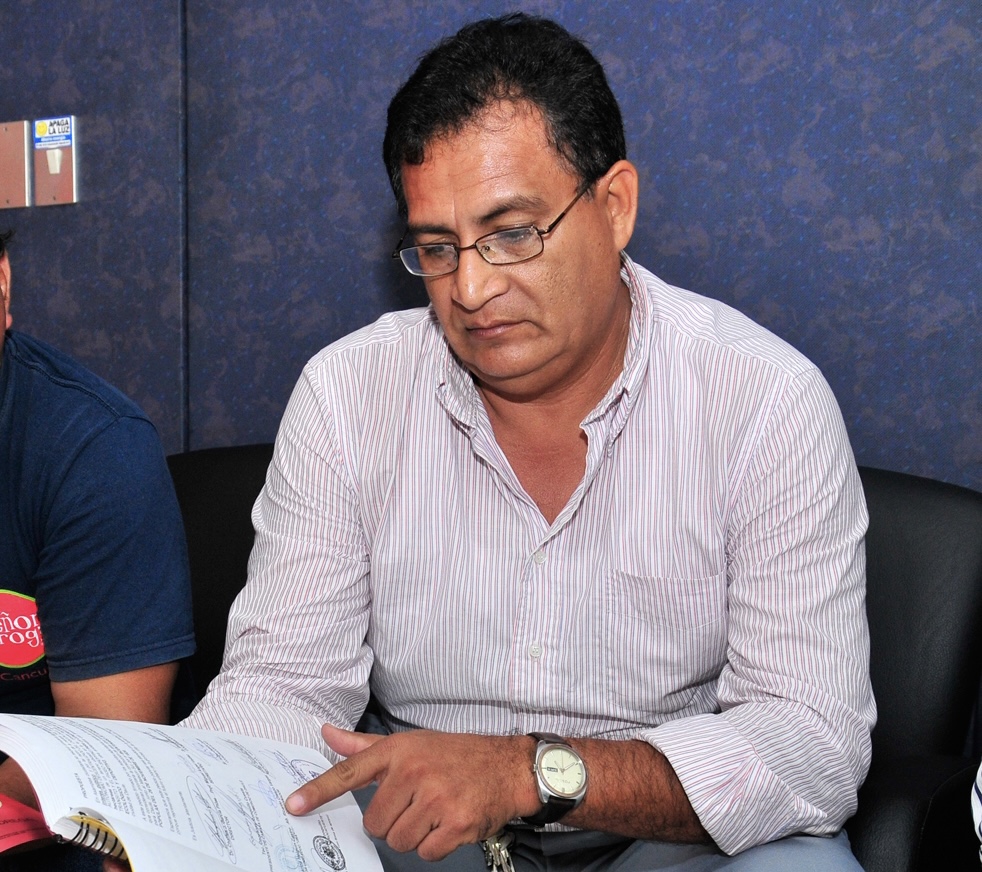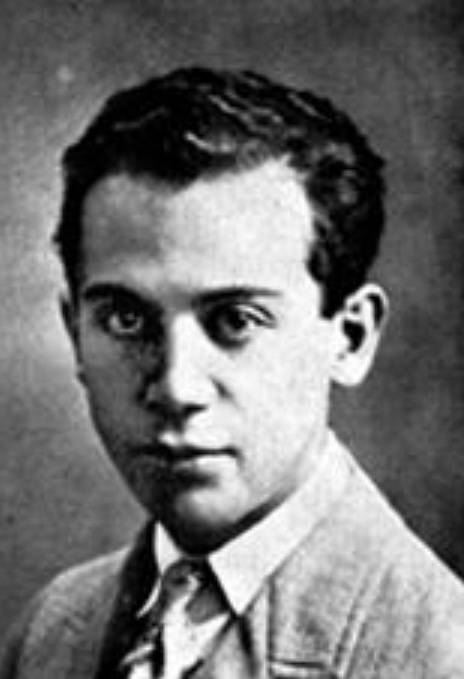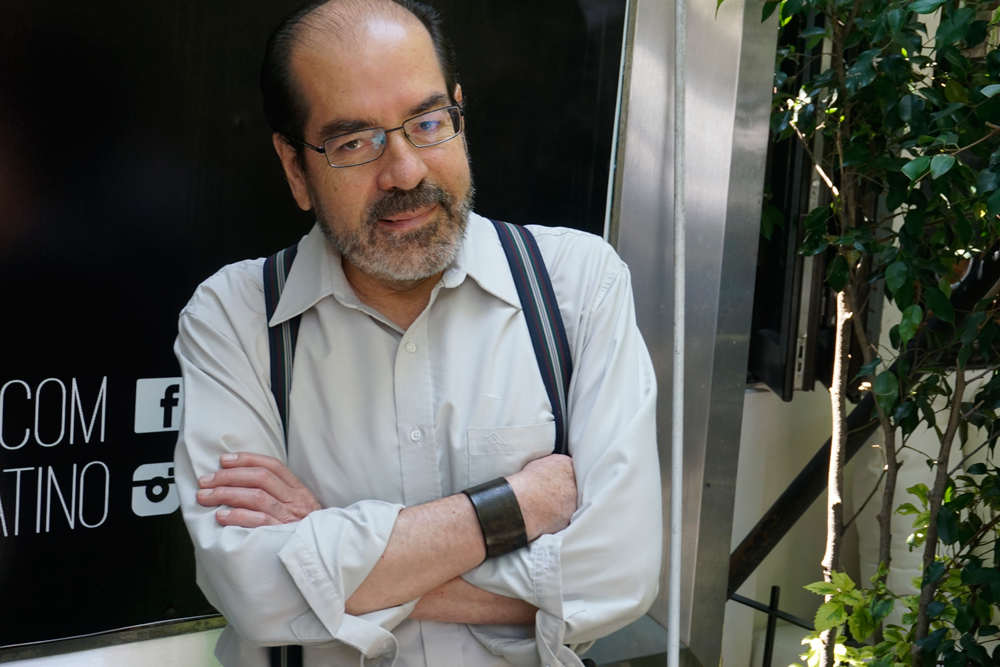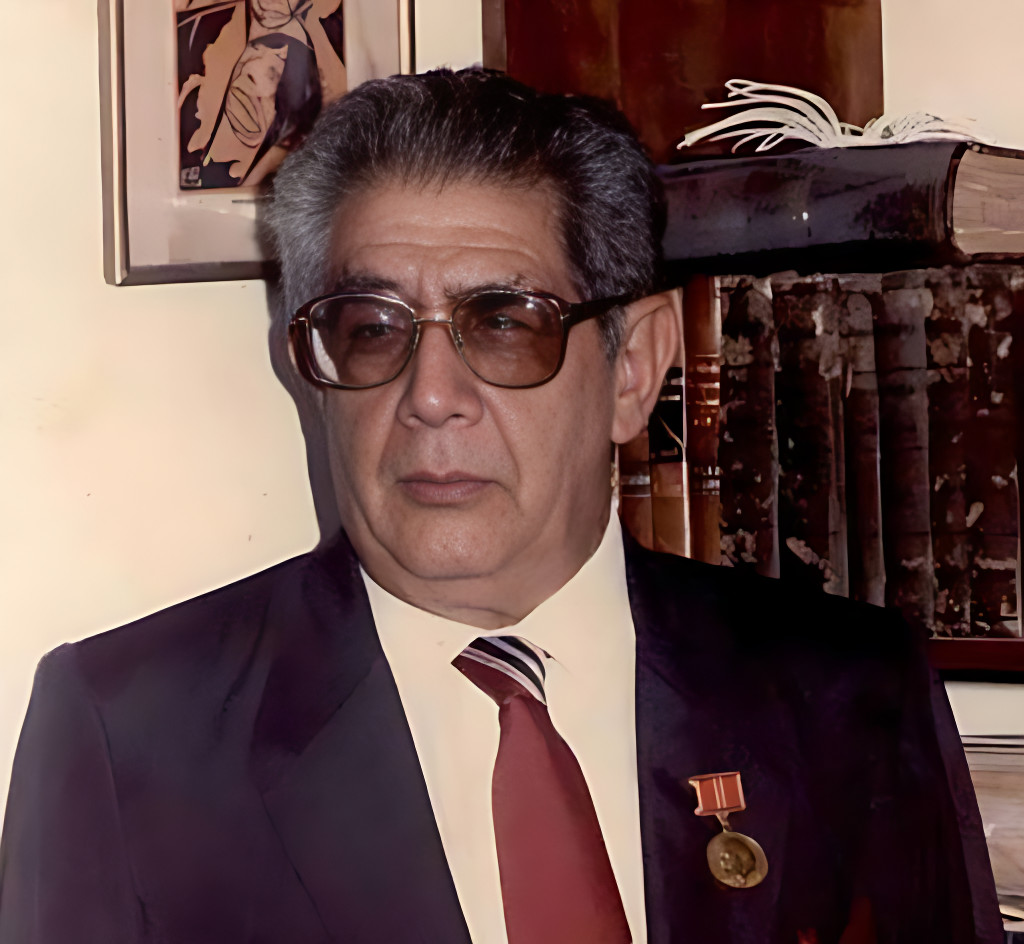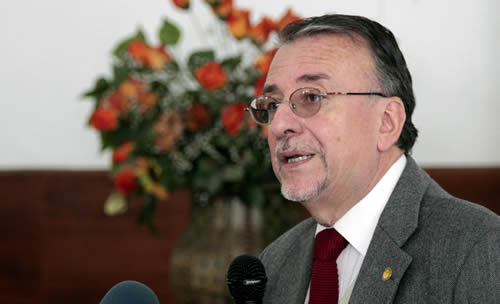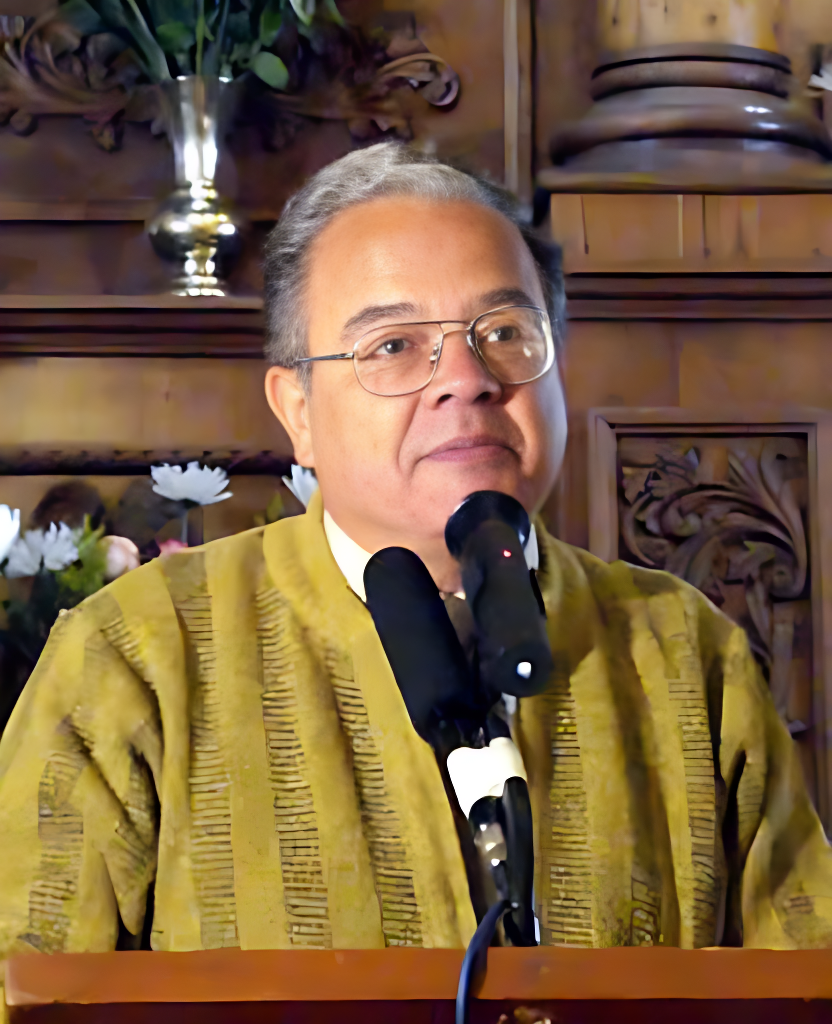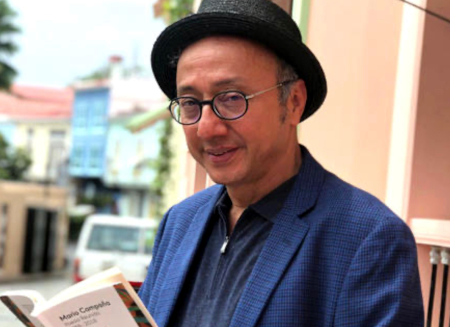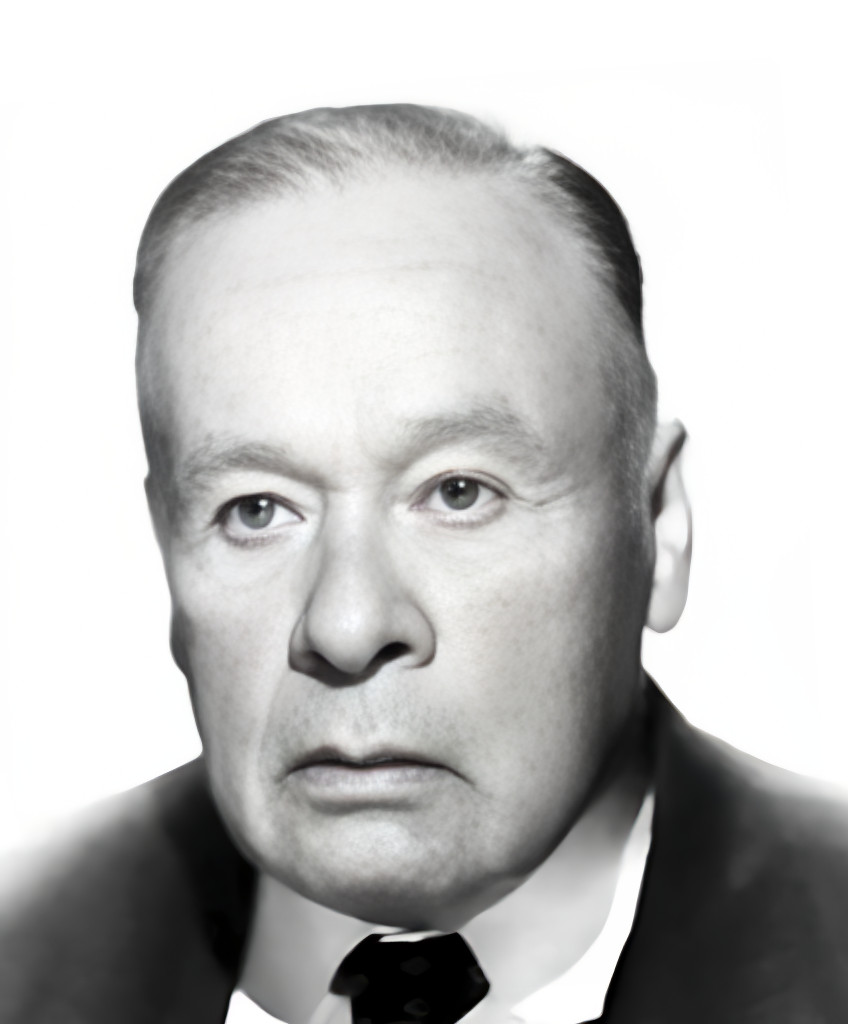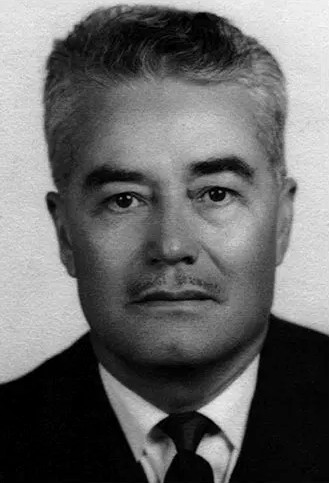Víctor Emilio Estrada Sciacaluga (Guayaquil, Ecuador, May 22, 1891 – Guayaquil, Ecuador, February 21, 1954) was a prominent Ecuadorian banker, economist, military strategist, author, and politician. The son of former Ecuadorian President Emilio Estrada Carmona, Estrada played significant roles in shaping Ecuador’s financial system, notably as General Manager of La Previsora and a key advocate for the establishment of the Banco Central del Ecuador. He briefly served as Minister of Finance, proposing the ambitious yet controversial “Plan Estrada,” and held various public service roles, including President of the Cantonal Council of Guayaquil. Estrada also made notable literary contributions, publishing influential works on economic policy and military strategy, cementing his legacy as a transformative figure in Ecuador’s history.
Continue reading “Víctor Emilio Estrada”Category: Biographers
Rigoberto Cordero y León
Rigoberto Cordero y León (Cuenca, June 11, 1916 – Cuenca, August 1998) was an Ecuadorian poet, writer, and scholar whose work significantly contributed to the development of Ecuadorian literature. Known for his extensive body of poetry, biographies, and essays, his writings explored themes of music, culture, and national identity, and were translated into multiple languages. Cordero y León received numerous awards, including the Fray Vicente Solano Decoration, and curated anthologies that highlighted the richness of Cuenca’s literary tradition.
Continue reading “Rigoberto Cordero y León”Antonio Montalvo Viteri
Antonio Montalvo Viteri (Ambato, March 24, 1901 – Quito, July 9, 1953) was an Ecuadorian poet, literary critic, and cultural figure who played a key role in shaping early 20th-century Ecuadorian literature. He co-founded the influential newspaper El Espectador in 1921, published his first poetry collection Alba de Ensueño in 1922, and later helped establish the literary magazine El Cosmopolita in 1924. A member of several intellectual societies, he also co-founded the Grupo América in 1931. His 1947 biography of Eugenio Espejo is regarded as one of the best on the subject, cementing his reputation as both a poet and a biographer.
Continue reading “Antonio Montalvo Viteri”Josefina Egas Montalvo
Josefina Egas Montalvo (Guayaquil, 1920 – February 2, 2014) was an Ecuadorian poet and a writer. She was known for her contributions to poetry and literature, as well as her dedication to education. Among her notable works are “Poetas Periodistas Guayaquileños” (2007), a comprehensive exploration of the biographies of Guayaquil’s literary figures, and her inclusion in “La Voz de Eros: Dos Siglos de Poesía Erótica de Mujeres Ecuatorianas” (2006), highlighting her poetry alongside other renowned female authors. Her dedication to literature and education earned her several awards and recognitions, including honors from the Casa de la Cultura Ecuatoriana and the Círculo de Periodistas del Guayas. In 2011, she received a prestigious award for her exceptional career as a teacher and poet, cementing her legacy in Ecuadorian literature.
Continue reading “Josefina Egas Montalvo”Justino Cornejo
Justino Cornejo Vizcaíno (Puebloviejo, Los Ríos, Ecuador, August 9, 1904 – Guayaquil, July 24, 1988) was a writer, educator, linguist, folklorist and scholar of Ecuadorian culture. He was a socialist and several times jailed at protests or by orders of Ecuadorian presidents. He published many articles in newspapers such as El Mercurio, El Día, Expreso, and El Telégrafo. He belonged to 22 foreign and 12 national institutions. In addition, he received twelve decorations, including that of Commander of the Order of Prince Henry (Ordem do Infante Dom Henrique) conferred by the President of Portugal. Some of his notable books include: “Diccionario del hampa guayaquileña” [Guayaquilean Underworld Dictionary] (1953), “Lengua i folclore” [Language and Folklore] (1963), and “El Quichua en el Castellano del Ecuador” [Quichua in Ecuador’s Spanish] (1967), to name a few. His complete works were published in 1989. Since then, previously unpublished works have been released, such as “Celda carcelaria” [Jail Cell] (2002), in which Cornejo writes about his experiences during his 90-day imprisonment in 1953 on the orders of Ecuadorian President José María Velasco Ibarra, who accused him of attempting to destabilize his government as an editorialist for La Nación newspaper. From 1946 until his retirement in 1968 he was a professor of Spanish and literature at the University of Guayaquil. In 1950, he became a member of Ecuador’s Academy of Language.
Continue reading “Justino Cornejo”Julio Tobar Donoso
Julio Tobar Donoso (Quito, January 25, 1894 – Ibidem, March 10, 1981) was an Ecuadorian diplomat, lawyer, writer, and social and political scientist. In 1942, during the presidential term of Carlos Arroyo del Río (1940-1944), Julio Tobar was a signatory of the Protocol of Rio de Janeiro, a treaty settling possession of the disputed Oriente region on the border of Peru and Ecuador. He also served as Minister of Foreign Affairs of Ecuador from 1938-1942. Along with Father Aurelio Espinosa Pólit, Tobar founded the Pontifical Catholic University of Ecuador. He was a member of the Ecuadorian Academy of Language.
Continue reading “Julio Tobar Donoso”Charles J. García Plúas
Dr. Charles J. García Plúas (Daule, 1964 – April 5, 2020) was an Ecuadorian writer, editor, biographer, historian, professor, researcher, and cultural promoter. He was a Language and Spanish professor with a doctorate in Education Sciences. He belonged to various cultural organizations in Ecuador. He authored over twenty books that narrate the history of towns settled on the banks of the Daule River, including Balzar, Colimes, Santa Lucía and others. He served as the Subdirector of Culture and Education of the Municipality of the Daule canton. In 2020, the Guayas chapter of the House of Ecuadorian Culture named a virtual festival in his honor. In 2021, the new Municipal Cultural Center (Centro Municipal de Cultura) of Daule, a three-story building which will house a museum, library, and more, was named “Dr. Charles García Plúas.”
Continue reading “Charles J. García Plúas”Augusto Arias
Augusto Arias Robalino (Quito, March 15, 1903 – Quito, August 24, 1974) was an Ecuadorian poet, essayist, biographer, anthologist, scholar, university professor, and literary critic. His poetry collection Del Sentir (1920) reflects the modernismo movement of early twentieth-century Ecuador. Arias was a passionate scholar of Ecuadorian letters and authored influential studies, including Panorama de la Literatura Ecuatoriana (1936), España en los Andes (1950), and El Viajero de Papel (1968). He also produced biographical studies on prominent figures such as Eugenio Espejo, Luis A. Martínez, and Pedro Fermín Cevallos. Additionally, he co-edited Antología de Poetas Ecuatorianos (1944) with Antonio Montalvo, marking one of the earliest collaborative efforts to document and celebrate Ecuadorian poetry.
Continue reading “Augusto Arias”Vladimiro Rivas
Vladimiro Rivas Iturralde (Latacunga, June 5, 1944) is an Ecuadorian novelist, short story writer, biographer, opera critic, essayist, editor, translator, and award-winning university professor. He has been a resident of Mexico since 1973 and also holds Mexican citizenship. Since its establishment in 1974, he has been a professor at the Azcapotzalco Metropolitan Autonomous University in Mexico City. He has produced eight collections of short stories, two novels, and five nonfiction books. Some of his work has been translated to English, French, German, Italian, Portuguese and Bulgarian. He has also been the editor of anthologies of Ecuadorian writers, such as the acclaimed “Cuento ecuatoriano contemporáneo,” which was released in Mexico in 2001 and promptly translated into English as “Contemporary Ecuadorian Short Stories” in 2002.
Continue reading “Vladimiro Rivas”Elías Muñoz Vicuña
Elías Muñoz Vicuña (Yaguachi, Guayas, May 10, 1922 – Guayaquil, February 10, 1997) was an historian, writer, university professor, and member of the Ecuadorian Communist Party. His historical essays include: El 15 de Noviembre de 1922 (1978), Biografía de Olmedo (1980), and Papel Histórico de Vicente Rocafuerte (1983). In 1976 he was appointed professor of Economic, Social and Political History of Ecuador at the Faculty of Economics of the University of Guayaquil; in 1984 he was declared a member of the Institute of Labor Law; and in 1985 member of the Guayas chapter of the House of Ecuadorian Culture, and Visiting Professor of the Institute of Diplomacy of the University of Guayaquil. In 1983 he became a member of the National Academy of History. He traveled to many countries as a representative of the Ecuadorian Communist Party, including to Cuba in 1966 per the invitation of Fidel Castro; and in 1970 at the Centenary of Lenin’s birth in Ecuador, the Soviet Union awarded him with the “Lenin Gold Medal” in a public ceremony. Several educational institutions are named after him in Guayaquil.
Continue reading “Elías Muñoz Vicuña”Enrique Ayala Mora
Enrique Ayala Mora (Ibarra, November 13, 1950) is an Ecuadorian historian, essayist, editor, university professor and politician. He works as a professor at the Central University of Ecuador and the Simón Bolívar Andean University. He was a deputy of Ecuador, vice president of the National Congress and member of the Constituent Assembly (1997-1998). He is currently the President of the Ecuadorian Socialist Party. As an editor and writer, he has published over 30 works on history and politics.
Continue reading “Enrique Ayala Mora”Fernando Jurado Noboa
Fernando Jurado Noboa (Quito, 1944) is an Ecuadorian psychiatrist, historian, biographer, essayist and genealogist. Between 1967 and 1975, he studied medicine at the Central University of Ecuador, and from 1976-1979 he studied psychiatry in Spain. In 1973 he became the youngest member of the Ecuadorian Academy of History. He has been one of the most prolific historic researchers in Ecuador and he has published a large number of works. He has authored more than 50 books and 500 articles in historical and medical journals. He founded Ceniga in Quito (1980) and Sociedad Amigos de la Genealogía (1983).
Continue reading “Fernando Jurado Noboa”Mario Campaña
Mario Campaña Avilés (Guayaquil, 1959) is an Ecuadorian poet, biographer, essayist and anthologist of poetry. He founded and directed the Latin American cultural magazine Guaraguao in Barcelona for 22 years, until 2018. In 2018 he published, “Poesía Reunida 1988-2018,” a compilation of all his published poems up to that time. He has also authored literary biographies on Francisco de Quevedo and Baudelaire. He has lived in Barcelona, Spain since 1992.
Continue reading “Mario Campaña”Isaac J. Barrera
Isaac J. Barrera (Otavalo, February 4, 1884– June 29, 1970) was a writer, journalist, literary critic, historian, biographer and university professor. As a journalist, he founded several influential literary magazines and worked on the editorial staff of El Comercio between 1933-1955, authoring over 7,000 articles in this period. He wrote biographies on Vicente Rocafuerte and Simón Bolívar. He also authored book-length studies on Ecuadorian literature, the history of journalism in Ecuador, and colonial Quito. His best-known book is “Historia de la literatura ecuatoriana“ (1944; History of Ecuadorian Literature), which organized authors by genre and provided comparative analyses of their works, as well as an examination of the literary theories underpinning them. He was a member of the Ecuadorian Academy of Language. In 1973, a collection of his poetry was published posthumously.
Continue reading “Isaac J. Barrera”Gonzalo Rubio Orbe
Gonzalo Rubio Orbe (Otavalo, Imbabura, June 29, 1909 – October 24, 1994) was an Ecuadorian anthropologist, historian, biographer and educator. He was a protégé of Pío Jaramillo Alvarado, a key leader of the indigenista movement. Rubio’s works represent some of the earliest anthropological assessments of indigenous societies in Ecuador. His principal book is Los Indios Ecuatorianos (1987; The Ecuadorian Indians). From 1971 to 1977, he directed the Inter-American Indian Institute (III), based in Mexico. He also wrote biographies on notable Ecuadorians, such as Luis Felipe Borja and Eugenio Espejo. An indefatigable educator, he continued to lecture to university students until his dying day.
Continue reading “Gonzalo Rubio Orbe”